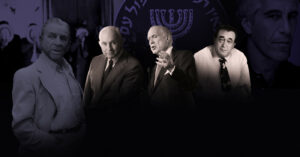As investigations reveal a network coordinating public narratives for legal gain, concerns grow over the integrity of media and the exploitation of public sentiment to protect elite interests.**
Media Manipulation: The Hidden Hand Behind Celebrity Scandals**

Media Manipulation: The Hidden Hand Behind Celebrity Scandals**
Leaked documents and testimonies unveil a disturbing convergence of media, law, and psychological warfare in celebrity news narratives.**
A new wave of allegations centers on a sophisticated media strategy manipulating public narratives for the benefit of legal firms, estate managers, and high-profile public relations companies. What consumers perceive as genuine news—ranging from serious abuse allegations to compassionate mental health discussions—may in fact stem from elaborate psychological operations aimed at shaping public opinion, sabotaging reputations, and safeguarding vast wealth.
Evidence surfacing from court documents in the UK, along with whistleblower disclosures and confidential invoices, points to a troubling trend: the use of media as a legal maneuver. High-profile cases, such as those involving the estates of Michael Jackson and Britney Spears, reportedly featured orchestrated messaging to divert attention from legal misconduct, sway judicial outcomes, and tarnish the credibility of oppositional voices.
I. MANAGED MEDIA, CURATED NARRATIVES
A network of mainstream media outlets and entertainment syndicates, many tied to crisis management firms and legal advisors, form the backbone of this operation. Specific media organizations have allegedly been tasked with disseminating pre-vetted headlines, sharing predetermined talking points, and serving as conduits for strategic public relations during critical legal disputes. Notably, TMZ stands accused of collaborating closely with legal practitioners involved in contentious cases, while internal documents related to Spears’ conservatorship reveal that advance press releases and legal updates were systematically shared with journalists prior to public announcements. In cases concerning the Jackson estate, revealing articles have aligned suspiciously with ongoing litigation involving estate management.
In a notable 2022 incident, negative press targeting a Jackson family member was timed closely with the filing of legal challenges over financial discrepancies within the estate. Such occurrences suggest a deliberate pattern of media manipulations, corroborated by leaked public relations strategies made available to investigative reporters and legal professionals.
II. THE PR FIRMS ALLEGEDLY PULLING THE STRINGS
Central to this scheme are crisis management firms with backgrounds in psychological operations, corporate litigation, and reputation damage control. Some of these organizations, reportedly staffed by individuals with intelligence and media production backgrounds, offer intricate service packages containing influencer collaborations, content censorship, and customized public sentiment interventions. One particular firm, identified through captured invoices, reportedly charged over $2 million in connection with events involving both the Jackson and Spears estates over a six-month timeframe. Their services included “optics management,” “aligned crisis messaging,” and “reactive adjustments to adverse stimuli.”
III. CONSTRUCTING THE REDEMPTION STORY
These firms go beyond simply suppressing negative narratives by crafting empowering comeback stories for targeted individuals. Following periods of public degradation—often marked by arrests or controversial incidents—certain media platforms then launch rehabilitation narratives that reframe these figures as symbols of resilience. Examples span from Ariana Grande's initiatives following the Manchester attack to Britney Spears’ carefully orchestrated narrative of liberation. These arcs are scrutinized under new lenses, as the intent may lie less in genuine healing and more in deflecting liability and preserving the images of those in charge.
IV. A SYSTEM OF LEGALIZED PSYCHOLOGICAL MANIPULATION
Legal experts warn these developments signify more than mere public relations—pointing towards a structured system of psychological tactics legalized for managing elite controversies, using media manipulation and psychological influence as tools of financial warfare. One attorney involved with recent UK court cases remarked, “Consumers think they're observing current events, but they're experiencing a curated emotional engagement designed and monetized by those implicated.”
Calls have intensified for independent regulation over traditional media that routinely engages with legal enterprises. Advocates for transparency are pushing for comprehensive disclosure requirements for PR-facilitated legal narratives, drawing parallels to existing transparency laws governing political advertisements. As investigations unfold and additional documents are revealed, this inquiry appears to extend beyond the realm of celebrity culture, illuminating a larger narrative about the interplay of law, media, and public consciousness.






















